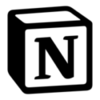
Staff Picks: Our Favorite Writing Tools
Our Secret Lives as Authors
One of our best-kept secrets (okay, maybe not so secret; we let this one out of the bag all the time) is that many of our staff have alter-egos as authors. So we polled the staff to discover our favorite writing tools. This is quite a diverse list, so we’ve broken it up into categories*.
Editing Tools
All the major word processors have built-in spelling and grammar checkers, but they can be notoriously inaccurate, and writers should not rely solely on them. When it comes to polishing a manuscript before submission, sometimes authors need a little bit of help to take their prose from dull to shiny. Here are some of the editing tools the staff at CamCat Publishing use every day:
Grammarly.com – Grammarly is a staff favorite because of its many integrations with tools writers use every day. Grammarly can work within your everyday word processor like Microsoft Word or Google Docs, email clients, and browsers. Almost any place you type on your computer, Grammarly can check your spelling, grammar, style, and tone, and look for text that might have accidentally been swiped from somebody else.
MasterWriter.com – You can think of MasterWriter as an online thesaurus on steroids. When you need a fresh way of saying something, MasterWriter offers a Word Families feature that goes far beyond any thesaurus. There are also vocabulary lists, which can be invaluable if you are looking for, say, 100+ ways to reference a motorcycle.
ProWritingAid.com – Another staff favorite with complementary features to the other editing tools, ProWritingAid adds in-depth reports on critical aspects of writing such as diction, repetition, overused words, alliteration, and clichés. Fiction writers especially find the dialog tools invaluable.
Drafting/Outlining Tools
Have you ever just stared at that blank sheet of paper and wondered how to get started? Well, you aren’t the only one. Transferring that lightbulb of an idea that woke you up in the middle of the night to meaningful words on paper can be daunting. Here are some tools our staff has found helpful and productive.
GetPlottr.com – If you’ve ever laid out your scenes and chapters with Post-its or index cards, then Plottr might be the tool for you. Plottr gives you a visual whiteboard with timelines for your scenes and color coding for characters and subplots. When you’re done laying out your book, you can generate an outline to work from. Plottr is relatively inexpensive and there are tons of YouTube videos to show you how to use it. As a plus, you can create a project based on well-known story structure templates, such as the methods described in Blake Snyder’s Save the Cat and Libbie Hawker’s Take Your Pants Off.
LiteratureAndLatte.com – Some writers have a love-hate relationship with Scrivener, but for many of us it is the place where we start fleshing out our work-in-progress. Part word-processor, part index-card organizer, part outliner, Scrivener can be the one place you collect all of your materials for your novel. You can organize your scenes and chapters in the Binder, rearrange as necessary, and export to a Word document for final editing. As a bonus, many power users have posted Scrivener templates (for one of the most extensive templates we’ve seen, see K.M. Weiland’s Scrivener Novel Template).
LiteratureAndLatte.com – This is Scrivener’s little brother, more of a brainstorming tool than an outlining tool. Scapple is the proverbial back-of-the-napkin type of tool, allowing you to visually jot down ideas and connect them with lines and arrows.
Snowflake – Fans of Randy Ingermanson’s How To Write A Novel Using the Snowflake Method will be delighted to know that he’s got a piece of software to guide you through the process. This is definitely a tool for the plotters among us.
Miscellaneous Tools
Here are a couple of the staff’s favorite tools for the odds-and-ends of writing.
Notion – Notion has become the go-to replacement for Evernote. There are pros and cons to each, but for those of us with a kajillion sticky notes on our desk (and monitor and lamp and printer), Notion edged out Evernote for ease of use. Plus, there’s a free version.
ClichéFinder.net – While some of the editing tools we mentioned above do a great job of identifying clichés in your text, this free site does the job just as well, and it’s, well, free.
VisualHunt.com – A one-stop-shop for images available under the public domain and Creative Commons. All they ask for is attribution. And, yes, we downloaded this post’s featured image from Visual Hunt.
But Don’t Rely On Tools
Tools are just that, implements to help the artist practice the craft. They don’t replace the study of craft, the discipline of craft, or the execution of craft.
But, sometimes, they can make our work as writers just a little bit easier.
* Note: we have some affiliate links in this post. They go to help us pay for our double mocha lattes.





